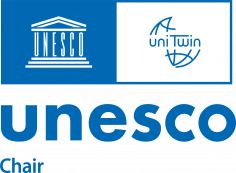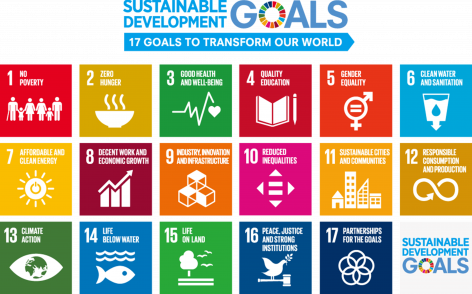-
Faculty of Arts and HumanitiesDean's Office, Faculty of Arts and HumanitiesJakobi 2, r 116-121 51005 Tartu linn, Tartu linn, Tartumaa EST0Institute of History and ArchaeologyJakobi 2 51005 Tartu linn, Tartu linn, Tartumaa EST0Institute of Estonian and General LinguisticsJakobi 2, IV korrus 51005 Tartu linn, Tartu linn, Tartumaa EST0Institute of Philosophy and SemioticsJakobi 2, III korrus, ruumid 302-337 51005 Tartu linn, Tartu linn, Tartumaa EST0Institute of Cultural ResearchÜlikooli 16 51003 Tartu linn, Tartu linn, Tartumaa EST0Institute of Foreign Languages and CulturesLossi 3 51003 Tartu linn, Tartu linn, Tartumaa EST0School of Theology and Religious StudiesÜlikooli 18 50090 Tartu linn, Tartu linn, Tartumaa EST0Viljandi Culture AcademyPosti 1 71004 Viljandi linn, Viljandimaa EST0Professors emeriti, Faculty of Arts and Humanities0Associate Professors emeriti, Faculty of Arts and Humanities0Faculty of Social SciencesDean's Office, Faculty of Social SciencesLossi 36 51003 Tartu linn, Tartu linn, Tartumaa EST0Institute of EducationJakobi 5 51005 Tartu linn, Tartu linn, Tartumaa EST0Johan Skytte Institute of Political StudiesLossi 36, ruum 301 51003 Tartu linn, Tartu linn, Tartumaa EST0School of Economics and Business AdministrationNarva mnt 18 51009 Tartu linn, Tartu linn, Tartumaa EST0Institute of PsychologyNäituse 2 50409 Tartu linn, Tartu linn, Tartumaa EST0School of LawNäituse 20 - 324 50409 Tartu linn, Tartu linn, Tartumaa EST0Institute of Social StudiesLossi 36 51003 Tartu linn, Tartu linn, Tartumaa EST0Narva CollegeRaekoja plats 2 20307 Narva linn, Ida-Virumaa EST0Pärnu CollegeRingi 35 80012 Pärnu linn, Pärnu linn, Pärnumaa EST0Professors emeriti, Faculty of Social Sciences0Associate Professors emeriti, Faculty of Social Sciences0Faculty of MedicineDean's Office, Faculty of MedicineRavila 19 50411 Tartu linn, Tartu linn, Tartumaa ESTInstitute of Biomedicine and Translational MedicineBiomeedikum, Ravila 19 50411 Tartu linn, Tartu linn, Tartumaa ESTInstitute of PharmacyNooruse 1 50411 Tartu linn, Tartu linn, Tartumaa ESTInstitute of DentistryL. Puusepa 1a 50406 Tartu linn, Tartu linn, Tartumaa ESTInstitute of Clinical MedicineL. Puusepa 8 50406 Tartu linn, Tartu linn, Tartumaa ESTInstitute of Family Medicine and Public HealthRavila 19 50411 Tartu linn, Tartu linn, Tartumaa ESTInstitute of Sport Sciences and PhysiotherapyUjula 4 51008 Tartu linn, Tartu linn, Tartumaa ESTProfessors emeriti, Faculty of Medicine0Associate Professors emeriti, Faculty of Medicine0Faculty of Science and TechnologyDean's Office, Faculty of Science and TechnologyVanemuise 46 - 208 51003 Tartu linn, Tartu linn, Tartumaa ESTInstitute of Computer ScienceNarva mnt 18 51009 Tartu linn, Tartu linn, Tartumaa ESTInstitute of GenomicsRiia 23b/2 51010 Tartu linn, Tartu linn, Tartumaa ESTEstonian Marine Institute0Institute of PhysicsInstitute of ChemistryRavila 14a 50411 Tartu linn, Tartu linn, Tartumaa EST0Institute of Mathematics and StatisticsNarva mnt 18 51009 Tartu linn, Tartu linn, Tartumaa EST0Institute of Molecular and Cell BiologyRiia 23, 23b - 134 51010 Tartu linn, Tartu linn, Tartumaa ESTTartu ObservatoryObservatooriumi 1 61602 Tõravere alevik, Nõo vald, Tartumaa EST0Institute of TechnologyNooruse 1 50411 Tartu linn, Tartu linn, Tartumaa ESTInstitute of Ecology and Earth SciencesJ. Liivi tn 2 50409 Tartu linn, Tartu linn, Tartumaa ESTProfessors emeriti, Faculty of Science and Technology0Associate Professors emeriti, Faculty of Science and Technology0Institute of BioengineeringArea of Academic SecretaryHuman Resources OfficeUppsala 6, Lossi 36 51003 Tartu linn, Tartu linn, Tartumaa EST0Area of Head of FinanceFinance Office0Area of Director of AdministrationInformation Technology Office0Administrative OfficeÜlikooli 17 (III korrus) 51005 Tartu linn, Tartu linn, Tartumaa EST0Estates Office0Marketing and Communication OfficeÜlikooli 18, ruumid 102, 104, 209, 210 50090 Tartu linn, Tartu linn, Tartumaa EST0Area of Vice Rector for DevelopmentCentre for Entrepreneurship and InnovationNarva mnt 18 51009 Tartu linn, Tartu linn, Tartumaa EST0University of Tartu Natural History Museum and Botanical GardenVanemuise 46 51003 Tartu linn, Tartu linn, Tartumaa EST0International Cooperation and Protocol Office0University of Tartu MuseumLossi 25 51003 Tartu linn, Tartu linn, Tartumaa EST0Area of RectorRector's Strategy OfficeInternal Audit OfficeArea of Vice Rector for Academic AffairsOffice of Academic AffairsUniversity of Tartu Youth AcademyUppsala 10 51003 Tartu linn, Tartu linn, Tartumaa EST0Student Union OfficeÜlikooli 18b 51005 Tartu linn, Tartu linn, Tartumaa EST0Centre for Learning and TeachingArea of Vice Rector for ResearchUniversity of Tartu LibraryW. Struve 1 50091 Tartu linn, Tartu linn, Tartumaa EST0Grant Office
UNESCO Chair on Applied Studies of Intangible Cultural Heritage

The UNESCO Convention for the Safeguarding of the Intangible Cultural Heritage (2003) is adhered to by 180 states in the world. Hence we witness a growing need for professionals who understand the essence and socio-economic entanglements of the living heritage field. Established in 2019, the UNESCO Chair on Applied Studies of Intangible Cultural Heritage at the University of Tartu pursues to observe and support this process: we train students for work in this dynamic and topical field, we conduct research to find novel results/interpretations, we engage actors in the field to share their experience while learning from the state-of-the-art scholarly exchange. The Chair is linked to the implementation of the Convention for the Safeguarding of the Intangible Cultural Heritage but embraces also cultural diversity and heritage matters in general. Here are some examples of topics that are addressed: community action, ownership, livelihoods, food culture, small businesses, tourism, rural settlements, environmentally sustainable practices, traditional medicine.
The University of Tartu UNESCO Chair is a valued partner in the wider network of UNESCO Chairs. We take part in research projects and teaching while abiding by the UN Sustainable Development Goals like climate action, responsible consumption, or reducing inequalities. Together with students from all corners of the world, we study and discuss how to employ traditional knowledge and skills for the cause. We collaborate with scholars, civil society, and community members as well as policy-makers, in order to analyse social, economic, and environmental issues. We actively uphold a broad international and domestic cooperation, to strengthen the research-training-policy-society nexus.

The chairholder is Kristin Kuutma, Professor of Cultural Research. The research of professor Kuutma focuses on heritage policies and the links between cultural heritage and identity. She has represented Estonia as an expert in the Intergovernmental Committee for the Safeguarding of the Intangible Cultural Heritage, participated at numerous expert meetings, and served UNESCO’s Living Heritage Entity in an advisory capacity. She acts as the Chairperson of the Council of the Estonian National Commission for UNESCO and a member of the Estonian Council for Intangible Cultural Heritage. At the University of Tartu, she is a member of the committee elaborating the UT sustainable development roadmap.
Kristin Kuutma's keynote "Critical (Re)conceptualizations in the Politics of Heritage" at the symposium ""No such thing as heritage"? – From Basic Assumptions and Constructs to Reconceptualizations" held at the Helsinki Collegium for Advanced Studies (University of Helsinki) on March 4-6, 2020. Recording: University of Helsinki.
What is intangible cultural heritage?
Intangible cultural heritage is a designation used in cultural policy. It is linked to the UNESCO Convention for the Safeguarding of the Intangible Cultural Heritage that was adopted in 2003. In this international agreement the field of intangible cultural heritage is explained as follows:
The “intangible cultural heritage” means the practices, representations, expressions, knowledge, skills – as well as the instruments, objects, artefacts, and cultural spaces associated therewith – that communities, groups, and, in some cases, individuals recognize as part of their cultural heritage. This intangible cultural heritage, transmitted from generation to generation, is constantly recreated by communities and groups in response to their environment, their interaction with nature and their history, and provides them with a sense of identity and continuity, thus promoting respect for cultural diversity and human creativity.
Convention for the Safeguarding of the Intangible Cultural Heritage, Article 2
At the international level, the implementation of the convention is coordinated by UNESCO’s Living Heritage Entity. In Estonia, the Estonian Folk Culture Centre has been designated the national focal point for the implementation. Additional information can be found on the webpage of the Estonian National Commission for UNESCO which serves as a coordinative unit between UNESCO and Estonian organizations, institutions as well as private persons related to the work of UNESCO.
UNESCO and the Estonian National Comission (with English subtitles). ®Estonian Public Broadcasting (2021)
UNESCO in Estonia: UNESCO Chairs and female scientists (with English subtitles). ®Estonian Public Broadcasting (2021)


